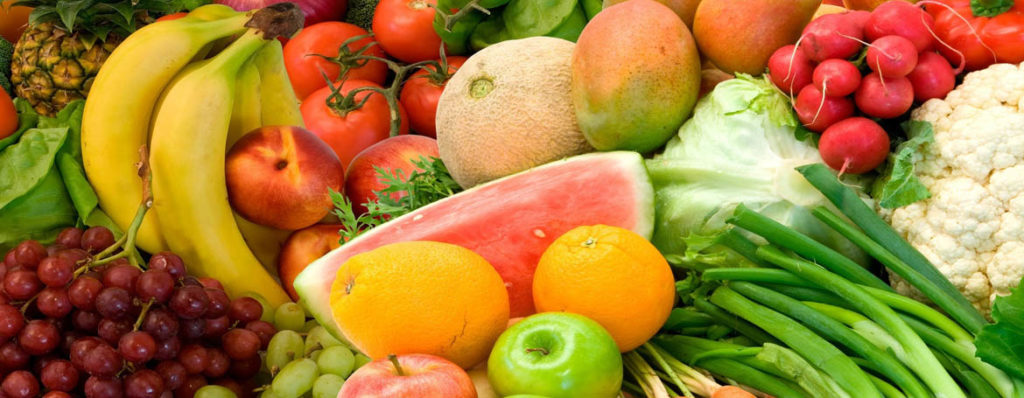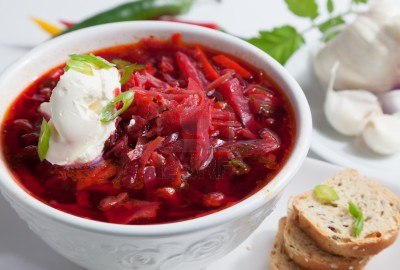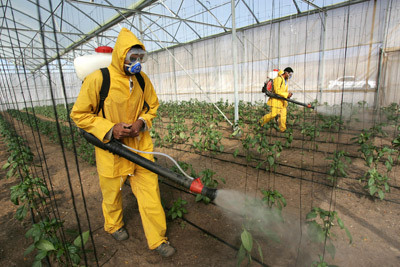
For 8 years I was eating what Russians eat. I didn’t try to simulate neither the Lebanese nor the Indian cuisine on the banks of Volga river. I avoided imported goods as much as possible. Natural Russian products were not in shortage at all.

Credits should be given to the Russian market for still having local “un-franchised” goods. Near a metro entrance you can see a babushka (elderly women) selling the milk of a cow she is holding in the backyard of her village house, berries gathered in the forests beyond the river. And if you drive some kilometers outside the city you can find a farmer who would supply you with fresh poultry and meat and you would be sure the product you are buying is a 100% natural product. In such farms the animals are grown in a natural way, feeding on the green grass of the fields and are never injected with growth hormones to increase their muscular mass.
Well, I didn’t give up with vegetarianism totally; I was just eating what Russians eat. Traditionally Russians are orthodox Christians, and according to Christian traditions, half of the days of the year are days of fasting (meat-free diet). I adhered to the church calendar of fasting days refraining from meat on Wednesdays and Fridays, and keeping a meat free window for few weeks before Christmas and Easter. It wasn’t so easy to hold firm to the fasts; I tried my best, but kept my diet flexible.
During this period I was practicing meditation intensively and I didn’t feel any dullness or drowsiness as the traditional texts promise. My hatha yoga practice, though not intensive, also didn’t suffer. Note that I am initially not a “rubber-flexible” guy. I am not double jointed nor do I have long muscle tendons (which is determined genetically). My flexibility has always been a result of regular practice. The combined diet did not prove harmful. On contrary, I felt the combination of food I am having kept both my body and mind healthy and capable of adapting to the cold Russian winter.
I was back to Lebanon in 2008. It is worth to say it took me more time to adapt back to Lebanese food than it took me to adapt to Russian food 8 years before. I started suffering stomach ache after each meal of cold Lebanese dishes. It didn’t take me a while to understand that there is a big difference between meza (cold dishes we usually think of as the sole representative of Lebanese cuisine) and real Lebanese food (the thing we call yakhni). Lebanese food is not what Lebanese restaurants present; it is what people cook at their homes. Stomach ache was healed when I started a balanced traditional Lebanese diet.
Now I try my best to have natural seasonal food. Vegetarianism has stopped to be a priority while the only taboo remains fast food sandwiches. Fish makes a good part of my diet – as it has always been part of the diet in east Mediterranean. I avoid meat as much as traditional dishes allow. The inhabitants of this part of the world have always had a healthy mixed diet and meat has always been a part of the diet but not in the same amount as now. (The availability of imported meat, hormone pumped, made it the main part of modern diet). The traditional diet was more moderate. This moderate diet is what I believe fits the best.

I cannot ignore my concern when it comes to the veggie products available in the Lebanese market. The wide use of pesticide and chemicals make most of the greens, fruits and vegetables a havoc for health. To keep on the safe side you may plant your own greens, or buy your vegetables and fruits from farmers you know and trust. I admit I am lucky enough to have this option available. You can even find farmers who can supply you with natural meat and milk, though it will take you time to find one. For me, I prefer to eat home grown poultry and meat than chemically nourished, pesticide soaked, greenhouse grown vegetables.
My last period of vegetarianism was between 2009 and 2011. After my last visit to India, I was already feeling that vegetarianism is more a part of the Indian culture rather than a prerequisite for yoga practice. The truth I say, I was already feeling not only vegetarianism, but many Indian local endogenous elements interlace with yogic practice and Vedanta philosophy in the traditional texts and the teachings of some modern schools. Philosophy and practice can be international, but generalizing traditions and rituals of a certain culture in a kind of globalization might not be what we need. In the same manner as you can be a yogi – even a self realized one – without praying to Ganesha, you can be a yogi without adhering to Indian traditional diet.
From my point of view, to eat as a yogi means more than eating sattvic food. Questions of physical, mental and spiritual health, non-violence, ecology and morality are of more importance.
I’ll be addressing these questions in part III